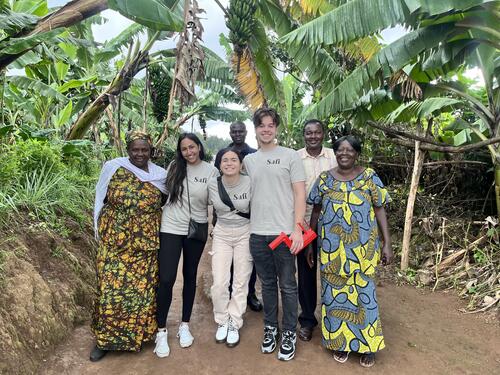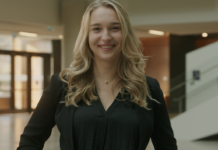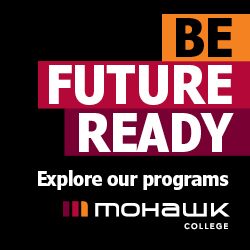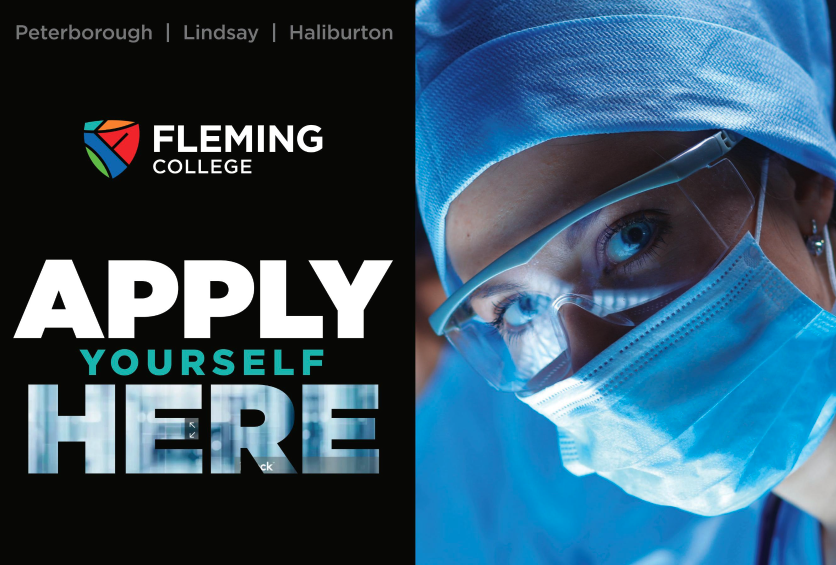
Startup Safi Leveraged Entrepreneurial Resources, Including Velocity and the Math Innovation Office, to Transform Their Idea into Reality
Safi, a startup founded by students from the University of Waterloo, is on a mission to revolutionize milk pasteurization in East Africa. The name “Safi” originates from Swahili and translates to “pure” or “safe.” Their goal is ambitious: to enable East African farmers to pasteurize milk affordably and easily, ultimately eliminating milk-transmitted diseases. Today, Safi’s founders are actively collaborating with governments, presenting at international conferences, and gearing up for a 300-unit pilot rollout in Rwanda. However, just two years ago, Safi was nothing more than an idea.
When the COVID-19 pandemic struck, Miraal Kabir, Daria Margarit, and Martin Turuta—students from the Math-Business dual degree program and close friends—felt a compelling need to contribute. In early 2021, they stumbled upon Challenge4ClimateAction, a competition encouraging young entrepreneurs to address climate change-related issues in the Global South. Although they hadn’t pinpointed their focus at that time, they decided to form a team and participate.
The pandemic prompted thoughts of a different deadly coronavirus: MERS. Kabir, who grew up in Oman, was aware of the dangers associated with unpasteurized camel milk, which transmits various diseases, including MERS and tuberculosis. Her volunteer experiences in Tanzania revealed that unpasteurized milk posed a significant public health threat in East Africa. Climate change had prompted many farmers to shift to drought-resistant camels as their primary livestock, despite the high risk of pathogen transmission in camel milk.
While most East African countries mandated milk pasteurization at official facilities, the majority of milk sales were local and unregulated. Traditional pasteurization technology was prohibitively expensive, cumbersome, and energy-intensive, costing between $700 to $800 CAD for a home unit. With these challenges in mind, Safi proposed a solution: an easy-to-use, cost-effective ($10 to $15 CAD), fully mechanical device that would enable farmers to consistently and accurately pasteurize milk at home.
To their delight, they won the competition, and Safi was born.
Building Momentum with Velocity
In spring 2021, Safi secured the top prize at the Velocity $5K pitch competition. Apart from the financial boost, Safi’s technological development surged when they joined the Velocity community, helping them reach significant milestones.
At Velocity Digital and Science spaces, the team refined and tested their pasteurization handles and received guidance from staff. They expanded their vision beyond a purely mechanical model, creating prototypes for battery-operated and corded models that would directly heat the milk, rather than relying on an external heat source.
“We used 3D printers to build the handles, overcoming a significant hurdle. We needed to rapidly brainstorm and implement solutions to create new iterations of the prototype,” noted Turuta. “Velocity was instrumental because we had a tight timeline, and without their support, we wouldn’t have completed the product before heading to Rwanda.”
The team also evolved, with engineering students Filip Birger (McMaster University) and Noel Jakubik (University of Toronto) joining in March to assist with research and development.
Funding the Dream
Last fall, Safi was accepted into Validate Global, an Austrian business accelerator program. Validate Global offered them the opportunity to conduct field testing in one of three African countries where they had connections with local NGOs. They chose Rwanda due to its robust milk industry.
However, a sponsorship from Validate Global didn’t cover the team’s airfare from Toronto to Rwanda. After unsuccessful attempts to secure funding elsewhere, they reached out to the Faculty of Mathematics’ Dean, Mark Giesbrecht, as a last resort.
Dean Giesbrecht forwarded their request to the Math Innovation Office, where Stephanie Whitney, Director for Research & Innovation Partnerships, promptly agreed to provide funding for their plane tickets from the Math Entrepreneurship Fund.
Whitney remarked, “Safi’s mission to combat global threats caused by climate change aligns with Waterloo’s strategic vision. This initiative, which ingeniously combines technology and sustainability, exemplifies the purpose of the Math Entrepreneurship Fund.”
Giesbrecht concurred, stating, “The Faculty of Math is proud to have contributed to Safi’s important work. We are committed to empowering students so they can realize their ideas and help create a better future.”
Collaborative Creation in Rwanda
From April 21 to 28, Kabir, Margarit, and Turuta traveled to Rwanda to engage with government officials, NGO representatives, local farmers, and vendors. Concerned that their status as university students might hinder their credibility, they were pleasantly surprised by the immediate and overwhelmingly positive response. On their first day, they met with the deputy general of the Ministry of Agriculture, who, upon hearing their project pitch, immediately began arranging meetings.
“They moved really, really fast,” Turuta reflected. Soon, they were in discussions with Rwandan dairy industry leaders and inspectors, liaising with manufacturers to explain how the device worked, and forging connections with farmers who expressed interest in their product.
Accompanied by representatives from Ripple Effect, a local NGO, they visited a cooperative where they interacted with farmers who stood to benefit from their invention. The excitement in the air was palpable. Despite needing a translator to demonstrate the pasteurization handle, Margarit noted that “you could see the farmers’ eyes light up with pure excitement.”
Kabir emphasized that Safi’s mission isn’t about imposing solutions but rather co-creating with the local community. “They have the knowledge and skills but may lack the resources. Working together can create a huge impact.”
Building a Better Future
Safi’s progress has been rapid. On their way back from Rwanda, they won first place at the Enactus National Exposition in Montreal. This summer, as part of the E-co-op program, Kabir is devoting her full attention to Safi. The entire team is dedicated to refining and testing new versions of their pasteurization handle based on the feedback they received during their trip.
They are collaborating with a local Rwandan manufacturer, REMCO, to produce a pilot run of 302 pasteurizing handles this September. The deputy minister of Agriculture has invited them to present at a pan-African milk and dairy conference this fall. Recently, they were accepted into Switzerland-based incubator MASS Challenge and the ASME Innovation Showcase’s iShow, both of which will provide additional funding and support for prototyping. In October, they will pitch at the international Enactus World Cup in the Netherlands, with officials from Kenya, Uganda, and Tanzania expressing interest in conducting their Safi pilots in 2024.
While Safi remains focused on perfecting its portable pasteurization device and expanding its network in East Africa, the team also envisions broader applications for their technology. Turuta explains, “One of the significant issues Safi has identified extends beyond milk pasteurization, addressing how individuals in rural areas lack access to industrial-level systems. We’re interested in essentially miniaturizing large industrial processes.”
Kabir summed up their journey: “We’ve had the best past six months. The previous year-and-a-half was a bit slow. Entering the startup space isn’t smooth sailing, but with perseverance, you can catch that lucky break. From there, the sky’s the limit.
Learn more about Safi by visiting their website. Learn more about Innovation and Velocity here.









